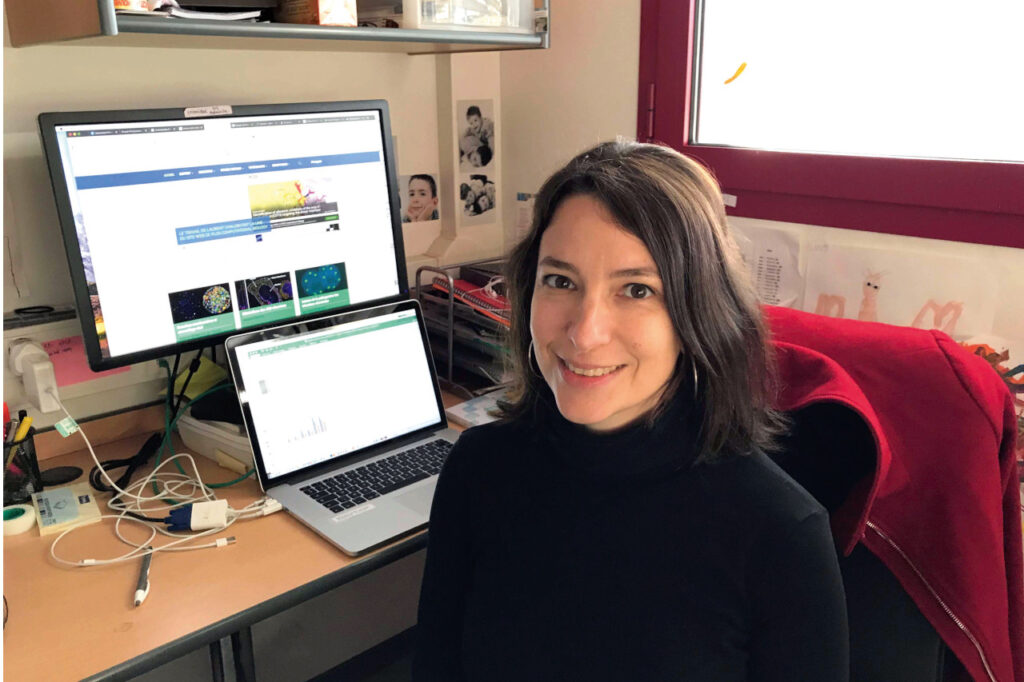[LUM#9] Encounter with interferon
Virologist at the Montpellier Infectious Diseases Research Institute (IRIM), Caroline Goujon has been leading a research team on interferon since 2015. Interferon is a molecule secreted by our cells that is essential for resisting pathogens, but whose functioning remains poorly understood.

Her story with interferon began almost ten years ago in the United Kingdom. Caroline Goujon was then doing postdoctoral research after an exemplary, almost novelistic career path that took her from a technical degree tothe Cochin Institute. There she rubbed shoulderswith " passionatelecturers who loved to pass on their knowledge and really set me on the right track." It was a golden opportunity, as the following year she joined the Ecole Normale Supérieure in Lyon before heading to England.
Fascinated by viruses and "their ability to hijack the cell's machinery for their own benefit," she specialized in HIV until she had an unexpected encounter: "I stumbled upon some fascinating data while conducting experiments. That's when I became interested in the effect of interferon on host cells."
At random experiences
Back in France seven years later, she passed her research fellow exam, secured funding for young researchers, and set up her own team to study interferon. It must be said that interferon has everything it takes to inspire passion. A natural antiviral, this molecule secreted by our cells has the incredible power to protect us against viruses and bacteria without the need for antibodies. How does it work?
Produced by the cell when a pathogen invades, interferon binds to the surface of the cell and surrounding cells and sends out an alarm signal that triggers genetic reprogramming in each of them. "These cells exposed to interferon will express around a hundred genes, a handful of which will encode proteins capable of fighting the infection," explains the biologist.
A race against time
Here's the theory: "In real life, it's a race against time, " explains Caroline Goujon. "A virus like influenza multiplies very quickly. Interferon helps limit its spread, but it's not enough." As a result , we get sick.
Hence the interest for scientistsin"identifying this handful of genes capable of inhibiting virus replication" in order to better understand how they work. The ultimate goal isthe"distant hope" of paving the way for new therapies. Inthe "very special atmosphere [ of her] confined laboratory, and the calm," so much appreciated, of a tête-à-tête between virus and interferon, the researcher knows: "Potentially, the solution is within us."
Find UM podcasts now available on your favorite platform (Spotify, Deezer, Apple Podcasts, Amazon Music, etc.).